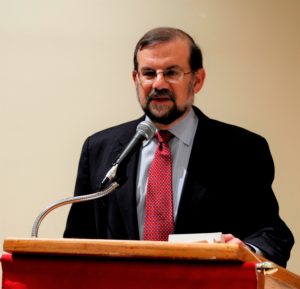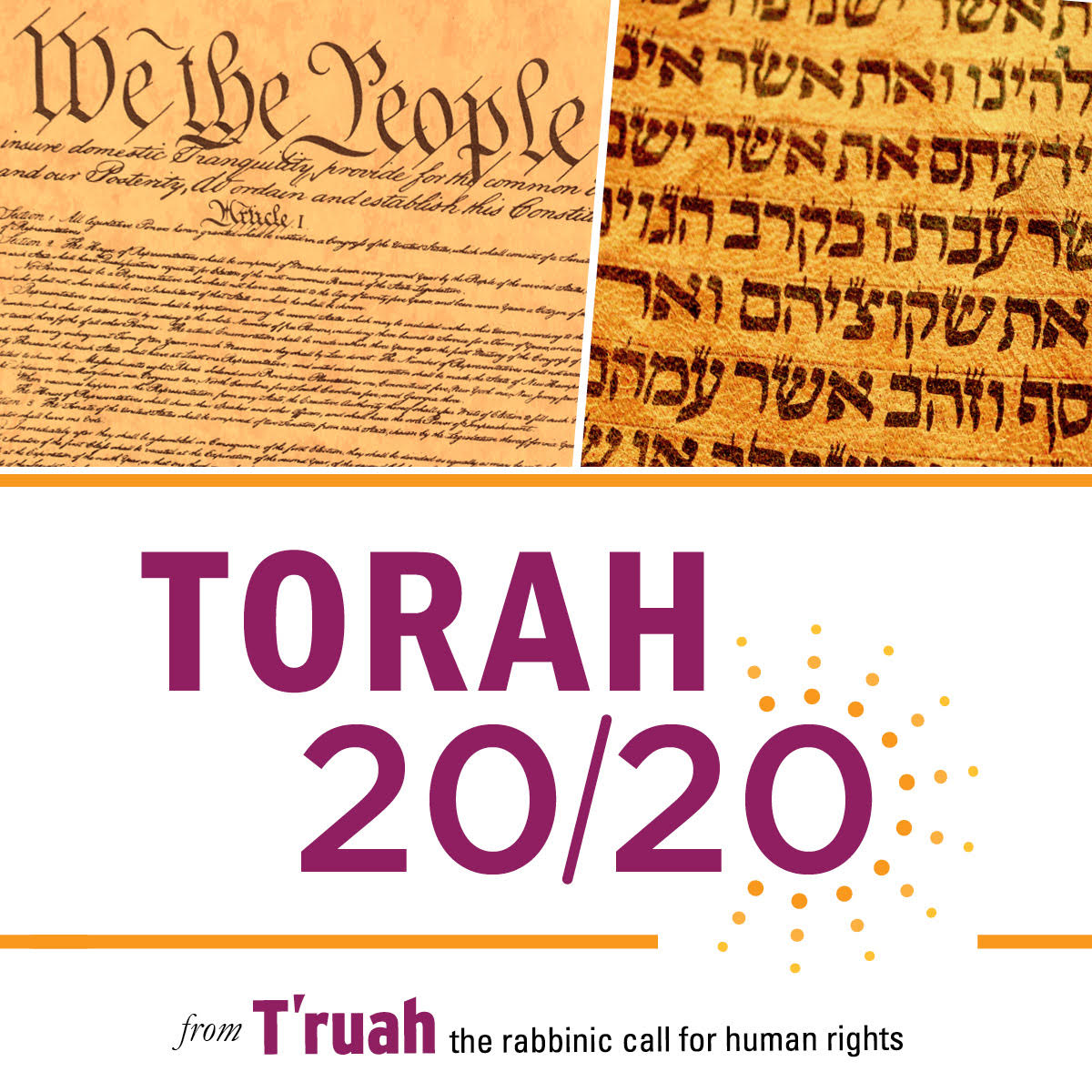Just what are the sins of Sodom?
It is written in Psalm 18:36, “You have given me the shield of Your protection.” According to the Midrash, “this verse refers to God’s protection of our ancestor Abraham.” The verse continues, “…Your humility has made me great.” This also refers to Abraham. In what way did God display humility to Abraham? Genesis Rabbah 48:1, on the beginning of this week’s portion VaYera, interprets this verse to teach us that God stood while Abraham, who was healing from his circumcision, sat!
This surprising assertion takes some unpacking. Genesis 18:22, reporting the departure of two of the angels visiting Abraham and Sarah to head to Sodom, pretty clearly says, “Abraham remained standing before the Lord.” But the Midrash on that verse (Genesis Rabbah 49:7) points out that this is a “scribal correction” (tikkun soferim), suggesting that the original verse had God standing while Abraham was seated. To make it more theologically palatable, the ancient scribes “adjusted” the text, reversing subject and object, so that Abraham stood before God. But our rabbis knew that originally, God stood while Abraham sat. Why? God showed Abraham the virtue of humility.
Sign up to receive Torah 20/20 in your inbox each week.
And not merely by standing before Abraham, who was recovering from circumcision at age 99. God also showed humility by consulting with Abraham in advance of God’s nuking of Sodom and Gomorrah: “Shall I hide from Abraham what I am about to do?” (Genesis 18:17). And if it were not enough that God stood, and God transparently submitted God’s plans to Abraham for his opinion –– God also allowed Abraham to argue about those plans. And, perhaps, God even changed the plans in deference to Abraham’s insistent question: “Shall not the Judge of all the earth do justice?” (Genesis 22:25).
Why does God take such pains to display humility, consult with openness and transparency, and even adjust the plan in deference to Abraham’s bargaining? God explains, “Since Abraham is about to become a great and populous nation . . . I have singled him out that he may instruct his children and his posterity to keep the way of the Lord by doing what is just and right” (Genesis 18: 18-19). God offers Abraham a model of good governance. The King of the king of kings, the Blessed Holy One, Who needs no alliances, Who can create worlds by speaking but a word, Who can destroy cities by mere whim – God teaches Abraham the necessity of consultation, transparency, justice, and humility.
Find more commentaries on Parshat Vayera
This is in stark contrast to the model of governance, or perhaps better: anarchy, offered in the very next chapter of Genesis. There, the townsmen of Sodom, from young to old, surround Lot’s house, demanding that he turn over his guests. When Lot refuses them, claiming the inviolability of his hospitality, they shout, “Lock him up! Lock him up! Make Sodom great again!” Actually, those verses are not found in Genesis but in a rather recent midrash on the parashah. But the attack on strangers, the xenophobia of Sodom, the nationalism of the Sodomites, the mob rule and amoral behavior, these were the cause of the total destruction of the city, according to the Bible. When Abraham made his way to Sodom, “He saw the smoke rising like the smoke of a kiln. Thus it was, when God destroyed and annihilated the cities…” (Genesis 19:29).
This thuggish mob governance stands in sharp contrast to what God models for Abraham in this week’s Torah reading. When the Sodomites protested that their way was perfect, the best, they said, We only want what is ours by right. We do not want those strangers to have what is ours. What’s mine is mine. What’s theirs is theirs. What could be fairer?
 Pirke Avot (5:10) seems to reply directly to this claim, “The one who says, `what’s mine is mine and what’s yours is yours?’ There are those who say that this is the measure of Sodom.” In other words, what seems on its face to be simple fairness is in fact a form of willful blindness and distortion of the moral order. God’s example of humility, in contrast, can lead us to heed the better angels of our nature.
Pirke Avot (5:10) seems to reply directly to this claim, “The one who says, `what’s mine is mine and what’s yours is yours?’ There are those who say that this is the measure of Sodom.” In other words, what seems on its face to be simple fairness is in fact a form of willful blindness and distortion of the moral order. God’s example of humility, in contrast, can lead us to heed the better angels of our nature.
Rabbi Burton L. Visotzky, PhD, serves as Appleman Professor of Midrash and Interreligious Studies at the Jewish Theological Seminary, where he is the Louis Stein Director of the Finkelstein Institute for Religious and Social Studies.

